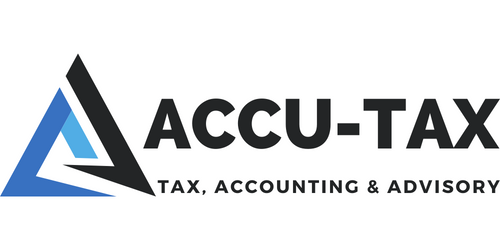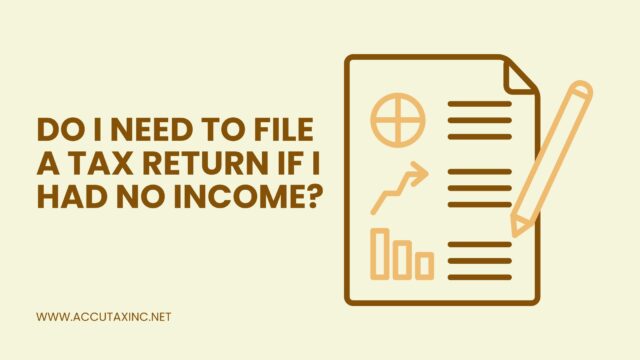Do You Need to File Taxes If You Had No Income in 2024?
If you didn’t earn any income during 2024, you’re probably not required to file a federal tax return for the 2025 filing season. However, there are several exceptions to this rule. In some cases, filing a return can even benefit you financially.
This guide explains when you must file, why you might want to file anyway, and how to submit a return with no income.
Income Thresholds for Filing in 2024 (for 2025 Tax Season)
The IRS sets minimum gross income thresholds to determine whether you must file a return. These depend on your:
-
Filing status
-
Age
-
Dependency status
Here are the 2024 thresholds:
| Filing Status | Age | Must File If Gross Income Is At Least |
|---|---|---|
| Single | Under 65 | $14,600 |
| 65 or older | $16,550 | |
| Head of Household | Under 65 | $21,900 |
| 65 or older | $23,850 | |
| Married Filing Jointly | Both under 65 | $29,200 |
| One spouse 65 or older | $30,750 | |
| Both 65 or older | $32,300 | |
| Married Filing Separately | Any age | $5 |
| Qualifying Surviving Spouse | Under 65 | $29,200 |
| 65 or older | $30,750 |
Note: Gross income includes all taxable income—such as wages, dividends, and capital gains. Social Security benefits are usually not included unless you have other income that makes them taxable.
What If You’re a Dependent?
If someone else claims you as a dependent, your filing requirement is based on your earned income. Generally, you must file if your:
-
Earned income is more than $450, plus
-
Any unearned income over $1,300 (whichever is greater)
But remember—you can never exceed the standard deduction. For complete details, check IRS Publication 501.
When You Must File Even With No (or Low) Income
Even if your income falls below the filing threshold, you still must file if any of these situations apply:
-
You earned $400 or more from self-employment
-
You received advance payments of the Premium Tax Credit
-
You took an early withdrawal from a retirement plan (IRA, 401(k)) and owe the 10% penalty
-
You owe any special taxes, such as:
-
Additional tax on IRAs or HSAs
-
Unreported tip income
-
Household employment taxes
-
Alternative Minimum Tax (AMT)
-
Repayment of refundable credits
-
Repayment of a first-time homebuyer credit
-
Social Security or Medicare tax on unreported income
-
In addition, certain distributions—like those from a Health Savings Account (HSA) or Medicare Advantage MSA—may trigger a filing requirement.
Reasons to File Even If You’re Not Required
Even when you’re not legally required to file, doing so can be smart. Here are some reasons why:
1. Claim a Refund
If you had any federal tax withheld from paychecks or made estimated payments, you’ll need to file to get that money back.
2. Claim Refundable Credits
You might qualify for credits that give you a refund—even with zero income. Examples include:
-
Earned Income Tax Credit (EITC)
-
Additional Child Tax Credit
-
American Opportunity Credit (education)
-
Premium Tax Credit
-
Child and Dependent Care Credit
-
Recovery Rebate Credit (if available)
3. Start the Statute of Limitations
Filing your return starts the three-year clock for claiming refunds and limits the IRS’s time to audit your return.
4. Satisfy Financial or Legal Requirements
Many institutions—like colleges, mortgage lenders, and banks—require a copy of your filed tax return to verify eligibility for loans or aid.
5. Protect Your Future Social Security Benefits
If you earned self-employment income, filing ensures your earnings are recorded. This helps calculate your future Social Security benefits.
How to File a Tax Return with No Income
Fortunately, filing a zero-income tax return is straightforward. Follow these steps:
-
Complete Form 1040 or 1040-SR.
-
Enter your personal details and filing status.
-
Write “0” on income lines (or leave them blank, if appropriate).
-
Fill in any sections related to refundable credits or withholding.
-
Submit electronically through:
-
IRS Free File
-
IRS Direct File
-
Certified e-file providers
-
Or mail a paper return directly to the IRS.
-
-
Attach any required forms (like Schedule EIC if claiming the Earned Income Credit).
Final Recommendation: When in Doubt, Ask a Tax Professional
If your financial situation is unclear—or if you fall into one of the “gray areas” such as limited self-employment income, marketplace health credits, or early retirement withdrawals—it’s wise to consult a qualified tax professional.
A professional can help you:
-
Confirm whether you must file
-
Maximize any potential refunds
-
Avoid filing mistakes or IRS penalties
Summary
If you had no income in 2024, you typically don’t have to file a federal tax return. However, you may still need to file if you earned self-employment income or owe certain taxes. Even if you’re not required to, filing could help you claim refunds, qualify for credits, and build a solid financial record.
Filing a return with no income is simple—and help is available if you need it.
Need help deciding whether to file?
Contact our team of experienced tax professionals today for personalized guidance.
Relevant sources
Federal Income Tax Tables & Preliminary Filing Considerations


